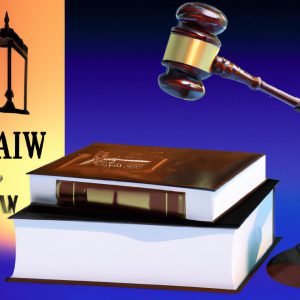How Long Does an Executor Have to Settle an Estate in New York?
As an executor of an estate in New York, it’s essential to understand the timeframes and responsibilities involved in settling the decedent’s affairs. New York State law dictates specific timelines for various tasks that must be completed during the estate administration process. In this comprehensive guide, we will explore how long an executor has to settle an estate in New York, the legal requirements, and the role of Morgan Legal Group in facilitating this process.
New York State Law Requirements
Under New York State law, the executor of an estate must adhere to a series of timelines and deadlines to ensure a timely and orderly settlement. Some of the key timeframes and responsibilities include:
1. Filing the Will
Within ten days of learning about the decedent’s passing, the executor must file the will with the Surrogate’s Court in the county where the decedent resided. Failing to do so promptly can lead to legal complications.
2. Notifying Beneficiaries and Heirs
The executor must notify beneficiaries and heirs within a reasonable timeframe after probate has been granted. This is typically done within 60 days of receiving letters testamentary.
3. Paying Debts and Expenses
Settling the decedent’s debts and expenses is a crucial part of the executor’s role. Generally, creditors have seven months from the date of the first publication of the notice of probate to file their claims.
4. Distributing Assets
After all debts, expenses, and taxes have been paid, the executor can distribute the remaining assets to the beneficiaries. This should occur as soon as reasonably possible, typically within one year of being appointed.
Complex Estates and Extensions
It’s important to note that complex estates or disputes can extend the settlement timeline. In such cases, the executor can request an extension from the court. Additionally, if litigation or will contests arise, the process may be further delayed.
How Morgan Legal Group Can Assist You
Settling an estate in New York can be a complex and time-consuming process, especially for executors who are navigating it for the first time. At Morgan Legal Group, our experienced estate administration attorneys are well-versed in New York State law and can provide invaluable assistance to executors.
We offer the following services to ease the burden on executors:
- Estate Administration Guidance: We provide clear guidance on executor responsibilities and timelines, ensuring compliance with New York State law.
- Legal Support: In complex cases or disputes, our legal team can represent executors in Surrogate’s Court.
- Asset Distribution: We assist in the efficient distribution of assets to beneficiaries, taking into account tax implications and legal requirements.
- Debt Resolution: Our attorneys help negotiate and settle the decedent’s debts and expenses.
Conclusion
Understanding how long an executor has to settle an estate in New York is crucial for fulfilling your role effectively. New York State law provides specific guidelines and deadlines that executors must follow. However, the complexity of the estate and potential disputes can impact the timeline. Executors can benefit greatly from the legal expertise and support provided by Morgan Legal Group to ensure a smooth and lawful estate settlement process.
Contact us today to discuss your estate administration needs and receive the professional guidance required to fulfill your role as an executor.




